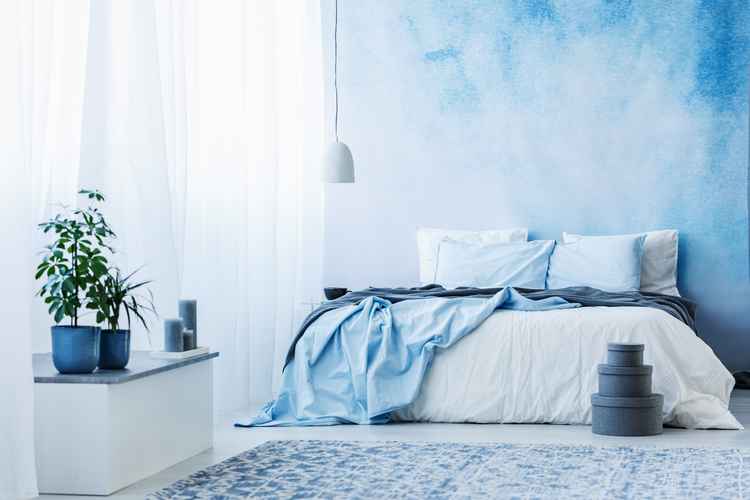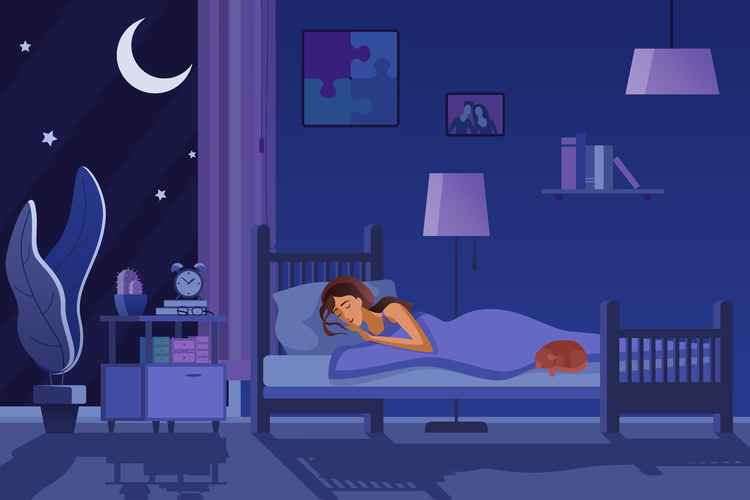MIND & BODY AFTER 50
How's Your Sleep?
Do you have sleep problems? If you’re saying ‘yes’, you’re certainly not alone!
Women often experience disturbed sleep during the perimenopausal years, and, by the age of 60, almost half say their sleep is a problem, at least from time to time.
Usually, this is just occasional sleeplessness — maybe caused by a work deadline, or a noisy neighbour, or a headache, or too much coffee, etc. etc. The woman feels tired, but, eventually her mind-body rebalances, and she’s back to regular restorati…
Why you want plenty of sleep!
Sleep scientists used to be mild-mannered folks.
They usually stayed in the background, busy measuring brain-waves and lecturing at the university. They wrote scholarly articles to be read mainly by fellow-scientists -- and the occasional medical student like me, years ago.
But recently, that’s changed.
Modern sleep scientists now speak out publicly, sounding the alarm. They say our society suffers from chronic sleep deprivation. We risk serious health problems in the years ahead.
The sle…
Sleep procrastination?
Do you find yourself delaying sleep? It’s your bedtime, but you stay awake for no definite reason?
Scientists call this ‘sleep procrastination’.
Maybe you’re busy online or you’re watching screen-based entertainment? Maybe you’re checking your devices, reacting to messages, etc? You’re busy reading this... watching that... Caught up in vaguely purposeless activity that absorbs your attention. Time goes by and you don’t go to bed.
You may even be in bed, but still you keep looking at an e…
Your body prefers a regular pattern of sleep!
Do you realize how much your body appreciates routine?
The body seems to prefer that we be regular in our daily activities -- that we do the same activities, at the same time, every day.
Here's important new research that shows the health risks associated with being irregular, especially the risks of sleep irregularity.
This 2023 study was published in the Journal of the American Heart Association. [1] Scientists found that people’s heart health is undermined if they have the habit of an …
Hyperarousal, Sleep, and Mindfulness
What is ‘Hyperarousal’?
Hyperarousal is a common mind-body state — so common that people often experience hyperarousal as ‘normal’! But science shows us that habitual hyperarousal is unhealthy for mind and body.
Hyperarousal refers to stress reactivity — especially the physical side of stress reactivity. When people get stressed, their body goes into hyperarousal.
The body is ‘on alert’ — with muscle tension, changes in blood pressure and heart activation patterns, characteristic effects…
Ultraprocessed eating?
Here’s a new study with evidence that food additives contribute to cognitive decline!
This could be an important message for you, depending on your dietary habits.
It’s a large, well-designed study just published in the Journal of the American Medical Association.
Researchers followed the cognitive health of more than 10,000 Brazilian public servants for 6 to 10 years. Their average age was 51 years at the outset. Over half were women.
When participants joined the study, they first gave d…
Sleeping less than 6 1/2 hours?
Sometimes people ask me: “How much sleep should I be getting?”
That’s a hard question. Science usually depends on the statistics of what’s true for many people — but you’re a unique individual. No law can be applied to you. You sleep as you sleep!
But here’s a study that will help you consider if your body needs more sleep.
The Study
This research paper was published last year in the respected Journal of the American Medical Association - Neurology. It’s from a large multinational study…
Turn out the lights!
Did you know? Your body is very sensitive to nighttime light. Here’s two surprising studies that could change the way you sleep.
In 2017, American researchers published a study involving more than 43,000 women (average age 55 years). Their health and lifestyle had been followed for about 5 years. Researchers discovered that women who sleep with artificial light at night have an increased risk for significant weight gain and obesity.
“In particular, sleeping with a light or television on in…
Less blue light please!
Science is learning that our sleep is especially sensitive to blue light (wavelength: 446 - 484 nm). If there’s too much blue light before bedtime, the quality of our sleep suffers -- deepest sleep is degraded. Scientists express concern that over-exposure to blue light could even affect the health of a woman’s unborn child.
Unfortunately, most electronic screens (smart phones, computers, tablets, many televisions) and some fluorescent lights release high levels of blue light. That’s why sle…
Sleep more -- Lose weight!
Here’s a surprise: Getting more sleep can help people lose weight!
In this well-designed study, people who usually sleep less than 6.5 hours lost weight by sleeping longer.
This research was published February 2022 in the prestigious Journal of the American Medical Association - Internal Medicine.
Researchers recruited 80 overweight adults who had a habit of sleeping fewer than 6.5 hours per night.
Half the group (40 people) were randomly assigned to attend sleep counselling sessions. In…











